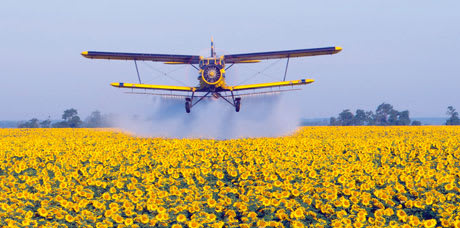It's taken three years for this documentary about food production to travel from the festival circuit to home video. It's been worth the wait, though the final results will depend on how large your TV screen is. In the tradition of docs such as 1996's Microcosmos or Jennifer Baichwal's Manufactured Landscapes, Our Daily Bread is purely a visual experience, just a camera gliding through food production farms and plants in Germany, Austria and across Europe. A worker sprays the floor beneath rows of upside-down pig carcasses. Hundreds of live baby chicks are processed through a massive conveyor belt. Apples are rinsed along a hundred lanes of water, resembling an Olympic swimming pool. Pigs are slaughtered efficiently through a giant machine run by indifferent workers. Another machine guts fish. There's no narration, interviews or even background music. There doesn't need to be; it's all widescreen film footage, beautiful shot and simply presented. Our Daily Bread exposes where the food we eat comes from. Until now, we haven't seen the systematic slaughter of live animals. Watching the film, we wonder how a worker feels processing dead pig after dead pig, or pressing a button in a machine that will kill a cow in seconds. Our Daily Bread passes no explicit judgements about its subject matter; it is what it is and that is unsettling. The film's silence forces the viewer to question what we eat and how we get it. The DVD bonus features are rather plain: a gallery of still photos taken during the shooting and an interview with director and cinematographer Nikolaus Geyrhalter in PDF form. Any website could've offered these extras and in fact, they are available at www.ourdailybread.at. Perhaps the delay in reaching home video will benefit this DVD. Today, more viewers than ever own a flat screen TV and a cinema-sized screen is the best way to watch this startling film.
(Mongrel Media)Our Daily Bread
Nikolaus Geyrhalter

BY Allan TongPublished Feb 20, 2009